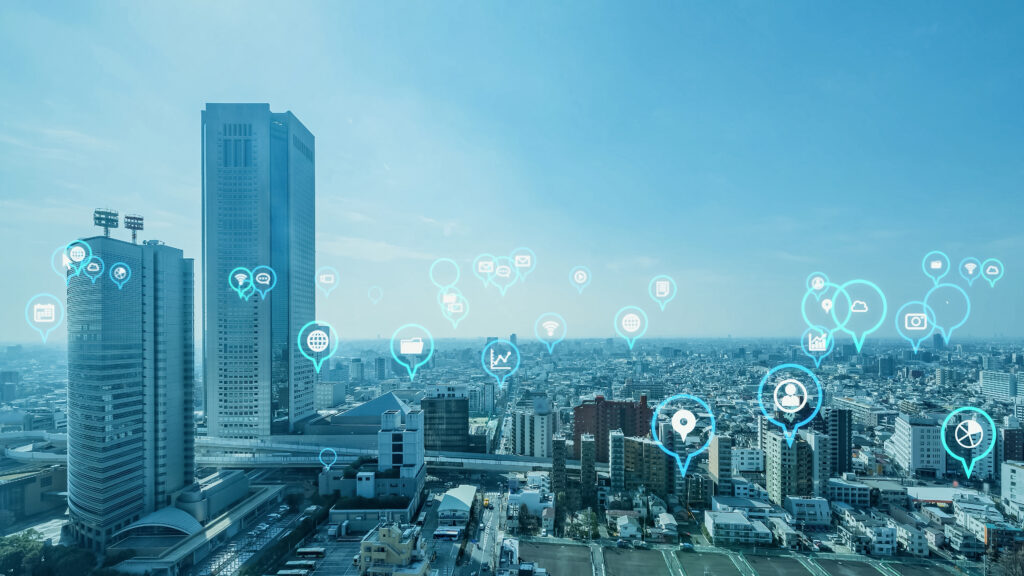The Future of Tourism with AI: Planned by AI, experienced by you
Artificial Intelligence is just about everywhere at this point. You work with it, you create with it. You may even use it every day—a lot of us do, whether we realize it or not. One thing’s certain, AI is disrupting the industries we work in and the people we work with.
Take tourism, for instance, machine learning and big data analytics are already reshaping the landscape. Intelligent trip planning tools create real-time itineraries and provide ‘round-the-clock customer service for travellers. While instantaneous market research optimizes marketing and pricing strategies for DMOs and operators.
It’s all about efficiency. But AI is not without its challenges and controversies—job losses and data privacy among the top concerns. It’s a delicate balance between smart tech and the human touch.
Still, a new era of destination marketing and traveller experience is upon us. Let’s explore how AI is impacting tourism, from planning trips to fine-tuning strategies to enhancing your value in the industry.
A helpful planner for travellers
AI’s ability to quickly create customized itineraries is one of the most notable impacts in Tourism. AI-powered tools like GuideGeek leverage vast amounts of traveller data to suggest relevant destinations, activities, and dining options. This saves time, and by tailoring suggestions to individual tastes, it also improves the overall travel experience.
It’s no different from the algorithms recommending which videos to watch on TikTok or songs to listen to on Spotify. AI analyzes a user’s past travel history, preferences, and social media activity. Then it produces a bespoke plan with attractions, activities, and experiences suited to that person’s interests.
AI and personalization go hand-in-hand. That’s why the technology is well-suited to travel and hospitality. Travellers want individualized experiences; AI customizes their itineraries. Travellers want the planning phase to be easy and efficient; AI does it for them and in a fraction of the time.
AI plays a supporting role in tourism, making it easier for travellers to travel and DMOs to promote their destinations.
Of course, the output relies on the input. If AI isn’t prompted properly or given the right information, the results are unhelpful. This is why speaking directly with travellers remains valuable. As a DMO or tourism professional, you have the ability to probe and discern, to read between the lines. AI doesn’t.
That’s another part of the conversation: AI-driven chatbots and virtual assistants in tourism. Many hotels and travel agencies use AI chatbots on their websites and social media. Some answer common questions and make recommendations, others handle complex questions and even do bookings.
The goal is real-time, 24/7 customer support—because better service equals a better experience for all. Travellers get quick information along with a smoother planning and booking process. Destinations and operators get more out of their resources, letting people do the human stuff while AI does the time-consuming stuff.

An intelligent assistant for DMOs and operators
AI in tourism goes beyond operational efficiency and customer satisfaction. It provides deep insights into consumer behaviour, guiding industry professionals to more personalized marketing and service offerings.
For instance, an airline can use AI to study past booking patterns, market conditions, competitor pricing, and even weather forecasts. The technology then predicts future demand for certain routes and suggests competitive yet profitable ticket prices.
Ultimately, DMOs and operators can increase revenue and occupancy rates in their destinations by using AI tools to guide marketing and pricing strategies.
Dynamic pricing and other AI-inspired strategies are now available to airlines, hotels, and tour operators alike. When insights are interpreted accurately, the technology helps businesses stay competitive in the market and attract price-sensitive customers at the same time.
Right person, place, and phrase
At the end of the day, AI is making it easier to understand travellers and how best to communicate with them. Meaning, it’s easier to segment them into different audience groups and create robust traveller personas.
For example, a tourism brand can:
- Use AI to scour social media and website data to pinpoint the destination’s primary and secondary audiences;
- uncover the types of content and activities those audiences are most interested in; and
- adapt its content marketing strategy to tailor communications and promotions to the wants of potential visitors.
Simply put, AI analyzes data and identifies patterns and trends among different traveller segments. This information strengthens your understanding of the people you want to reach, how to resonate with them (message), and where to meet them (media).
Why do place branding professionals care?
AI proves its worth by taking on the grunt work. It turns massive datasets into meaningful insights within seconds—a process that would take a literal lifetime for a human.
You can use AI to easily find out what most excites and attracts visitors. Then algorithms can detect sentiment and emerging trends in real-time so you can make on-the-fly campaign adjustments. Like identifying an interest in agritourism among the audience and promptly promoting farm-to-table experiences.
AI can identify the most attractive elements of a destination, helping place marketers create highly targeted, highly integrated campaigns.
How is the role of tourism professionals changing?
AI is stepping in for tourism professionals by automating routine and time-consuming tasks. Not to replace staff, to allow them to focus more on strategic and creative endeavours.
For example, if AI handles bookings, manages customer inquiries, and sorts data for an accommodation provider, employees can put more resources into providing an exceptional guest experience.
Basically, AI is becoming responsible for the repetitive ‘low-value’ work so the tourism professional can concentrate on the ‘high-value’ human work. Which has always been the case in the industry. Remember, the tool is only as powerful as the user.

What is the next frontier of AI in tourism?
The potential for AI in tourism is exciting. Pairing AI with virtual reality (VR), for instance, can offer an immersive virtual tour of a destination and help travellers plan their trip.
Imagine walking through the streets of Venice or hiking Mount Everest from your home. Or maybe it’s an even deeper travel experience created with predictive analytics, suggesting destinations and activities based on your past behaviour. That’s the potential future of VR powered by AI.
As AI becomes more prominent in tourism, transparency and ethical standards take on even greater importance.
Of course, with great power comes great responsibility. If you’re going to adopt AI systems, it’s important to be open about how you’re using them. The AI must be fair and unbiased, respect user privacy, and secure personal data.
Most importantly, the technology is best used as a tool to complement industry professionals, supporting and not replacing the people who remain at the core of travel and hospitality experiences. That’s the clearest prediction of AI and the future of tourism.
The technology is taking personalized travel experiences and operational efficiencies to a new level, truly transforming the industry. But the people—the local business owners, residents, and all those who make a destination special—the people can’t be replaced. And their stories can’t be faked.
Ready to uncover your destination’s story and tell it in a way only you can? Get in touch with Alphabet® today.